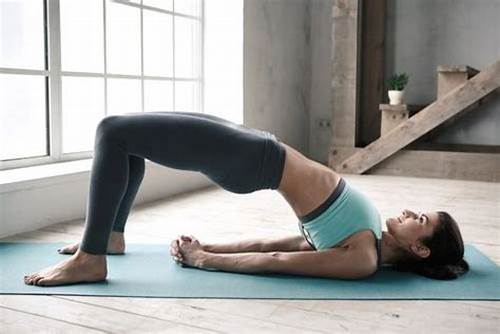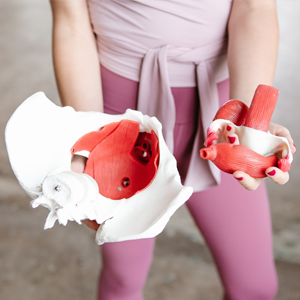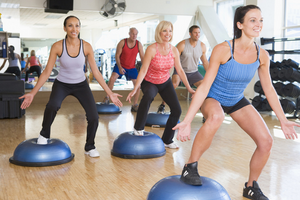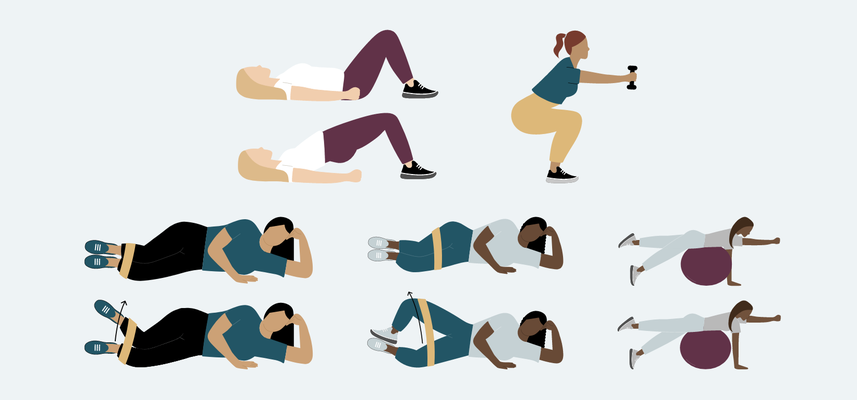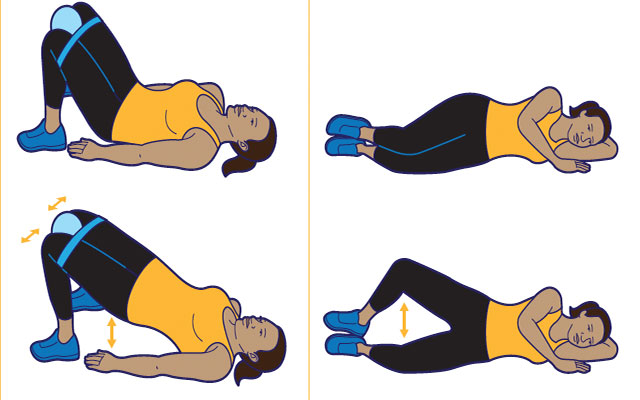7 Pelvic Floor Exercises for Anyone and Everyone
Pelvic floor exercises are an essential part of maintaining pelvic health and preventing urinary incontinence. Here are 7 exercises that can help strengthen your pelvic floor muscles, suitable for anyone and everyone:
-
Kegels: These are the most common pelvic floor exercises, where you contract and relax the muscles that control urination. To do a Kegel, squeeze the muscles you use to stop urinating and hold for a few seconds, then release. Repeat for a set of 10 [4].
-
Side-Lying Leg Lift: Lie on your side, stack your top leg directly over your bottom one, and lift your top leg while engaging your pelvic floor muscles. Do a set of 10 repetitions on each side [2].
-
Bridge: Lie on your back with knees bent, feet flat on the floor, and palms facing down. Contract the buttocks and pelvic floor muscles, and lift the buttocks several inches off the ground. Hold for 3-8 seconds and then release. Repeat for a set of 10 [3].
-
Split Tabletop: Lie on your back with knees bent, feet flat on the floor, and draw your belly button in towards your spine to engage your core. Lift one leg at a time into a tabletop position, and raise your arms straight up in the air as though trying to touch the ceiling. Hold for a few seconds and release. Repeat for a set of 10 [8].
-
Clamshell: Lie on your side with your legs bent, and open and close your top leg while keeping your feet together. Engage your pelvic floor muscles while doing this exercise. Do a set of 10 repetitions on each side [6].
-
Squat: Stand with your feet shoulder-width apart and squat down as if you are sitting in a chair. As you squat, engage your pelvic floor muscles. Return to standing position and repeat for a set of 10 [6].
-
Pelvic Tilt: Lie on your back with your knees bent and feet flat on the floor. Tighten your abdominal muscles and tilt your pelvis up, flattening your back against the floor. Hold for a few seconds and then release. Repeat for a set of 10 [1].
Remember to check with your doctor or physical therapist before starting any new exercise routine [6]. Performing pelvic floor exercises regularly can help prevent urinary incontinence and improve your pelvic health.









